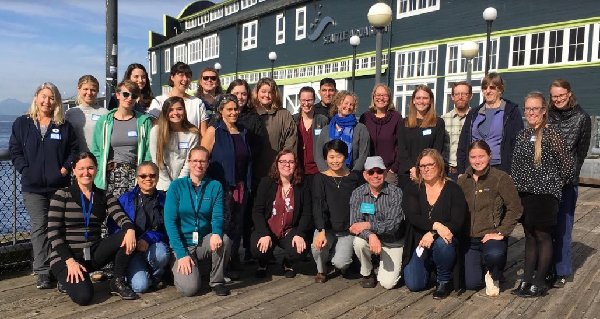
Events, Consortiums & Conferences

Pacific Northwest Consortium on Plastics - Spring Teleconference
Consortium Mission: The Pacific Northwest Consortium on Plastics is dedicated to conducting reliable, science-based research to uncover the risks associated with micro and nanoplastic particles to aquatic life. This research is critical to informing risk management decisions regarding the protection of our environment and essential fisheries and aquaculture commodities.
Spring Teleconference: Remarks from state lawmakers on plastics legislation, updates on research, and opportunities to connect and brainstorm with colleagues.

30th Annual PNW-SETAC Virtual Conference: Pacific Northwest Society of Environmental Toxicology and Chemistry
PNW-SETAC is the Pacific Northwest regional Chapter of the Society of Environmental Toxicology and Chemistry - North America (SETAC NA). It encompasses the largest geographical area within SETAC and includes Alaska, Washington, Idaho, and Oregon, as well as British Columbia, Canada.
This conference was in collaboration between PNW-SETAC & the Pacific Northwest Consortium on Plastics.
Attended as member of the microplastic researcher community, to stay up to date with the current research, and support the ACE Lab members that were presenting:
Alexandra Tissot - The Silence of the Clams: The Sub-lethal Effects of Environmentally Relevant Concentrations of Forestry Use Pesticides on Adult Soft Shell Clams

Western Society of Naturalists Conference: 2020 - Poster Presentation
The Western Society of Naturalists 101st Annual Meeting was held virtually from November 5-8, 2020.
Page 214-215
SEA SURFACE MICROPLASTICS: AN INSHORE-OFFSHORE GRADIENT OFF THE OLYMPIC PENINSULA Wood, R.S.*; Granek, E.F. Portland State University
The lack of data on plastic debris in various environmental compartments creates a vast data gap for many reasons. These include no codified methodology to characterize microplastics by morphology and polymer type, as well as gaps regarding contamination control & validation techniques. In September 2019, sea surface samples were collected off the Olympic Peninsula, WA to address three research questions. First, is variability in microplastic abundance driven by transect location and/or distance from shore Second, how does microplastic morphology and polymer composition vary relative to transect location and distance from shore? Third, which environmental variables contribute to patterns of microplastic variability in abundance and type? The project provides a distribution-abundance baseline for sea surface microplastics (2-3mdeep) along two transects: La Push & Grays Harbor, WA, USA. Organic matter was digested using a KOH solution. After measuring, photographing, and counting MPs via a dissection microscope, lipophilic Nile Red dye (10µg/mL) was applied, MPs were fluoresced at 455nm & counted again. Metrics to count & characterize the MPs found were: size (>63um), color, morphology (fragment, film, fiber, fiber bundle, foam, microbead, other), and polymer type via micro-FTIR. Microplastics count/type, independent environmental conditions, and location data will be analyzed using a t-test. Multiple regression will be used to identify relationships to environmental variables and an NMDS ordination to compare dissimilarity within the multivariate characterization data.

Seattle Aquarium - Microplastic Methodology Workshop
The proposed methods for my thesis project Characterization & Distribution of Sea Surface Microplastics: an Inshore-Offshore Gradient off the Olympic Peninsula was presented at the Seattle Aquarium's Microplastic Methodology Workshop on Oct. 1-2, 2019.
Discussions during the workshop resulted in the development of working groups, the understood needs for community science in microplastic monitoring discussions & the need for standardization of sampling structures.
Goals for moving forward include:
Sustain communication among the community; hold annual meetings to discuss current knowledge and create future plans.
Increase participation of community science programs (this involves creating and providing protocols that ensure collected data is scientifically relevant).
Create four working groups to develop topic-specific protocols and guidelines for quality assurance/quality control; community science; tissue sampling; and water/sediment sampling.
Produce and publish a workshop summary to be shared with participants as well as the greater community.

